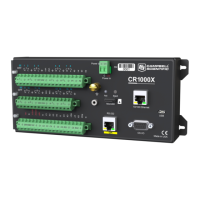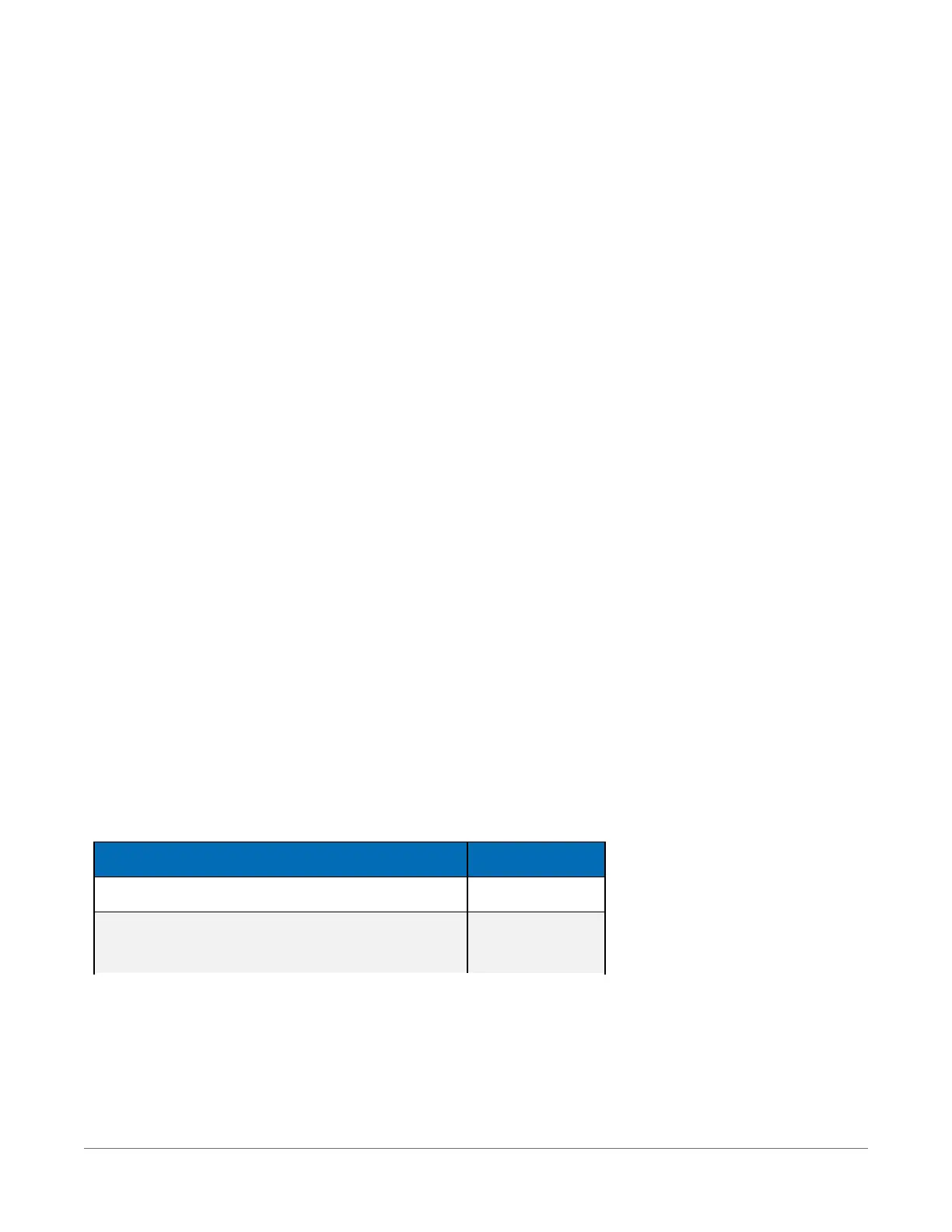Communications and processor bandwidth are consumed when generating the Status and other
information tables. If datalogger is very tight on processing time, as may occur in very fast, long,
or complex operations, retrieving these tables repeatedly may cause skipped scans.
Settings that affect memory usage force the datalogger program to recompile, which may cause
loss of data. Before changing settings, it is a good practice to collect your data (see Collecting
data (p. 29) for more information). Examples of settings that force the datalogger program to
recompile:
l IP address
l IP default gateway
l Subnet mask
l PPP interface
l PPP dial string
l PPP dial response
l Baud rate change on control ports
l Maximum number of TLS server connections
l USR drive size
l PakBus encryption key
l PakBus/TCP server port
l HTTP service port
l FTP service port
l PakBus/TCP service port
l PakBus/TCP client connections
l Communications allocation
9.12.1 Information tables directories
Use the following links to help you navigate through the Information Tables and Settings system:
l Find the PakBus address of the datalogger (p. 125)
l Communications (p. 126)
l Data (p. 127)
l OSand hardware versions (p. 127)
l Power monitoring (p. 127)
l Security (p. 127)
l Signatures (p. 128)
9.12.1.1 Frequently used
Action Keywords
Find the PakBus address of the datalogger PakBusAddress
See messages pertaining to compilation of the
CRBasic program running in the datalogger
CompileResults
9. Tips and troubleshooting 125

